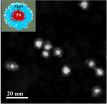(Press-News.org) Philadelphia - A large randomized clinical trial of an emergency department (ED)-based program aimed at reducing incidents of excessive drinking and partner violence in women did not result in significant improvements in either risk factor, according to a new study from researchers at the Perelman School of Medicine at the University of Pennsylvania. Contrary to previous studies which found brief interventions in the ED setting to be effective for reducing alcohol consumption to safe levels and preventing subsequent injury among patients with hazardous drinking, the new study did not find a positive result among women drinkers involved in abusive relationships. Results are available in the August 4th issue of JAMA.
"Concerns have been raised that brief motivational interventions for heavy drinking are less effective in women and in victims of violence; our results support those concerns," said lead author Karin Rhodes, MD, director of the Center of Emergency Care Policy & Research in the department of Emergency Medicine at Penn. "Hopefully our results will serve as a catalyst for further testing to see if a more intensive version of the intervention, provided in a different setting, for a longer period of time might be effective. Relationship violence and heavy drinking are two risk factors that commonly occur together, and have highly negative consequences for individuals, as well as their families and communities. We have to keep working on solutions to these problems."
For the program to be assessed as having had a positive effect, those who participated in the intervention would have achieved statistically better results on the variables being measured than those who did not receive the intervention. However, similar to other research with women who are involved in violent and abusive relationships, the new study - which involved 20-30 minute motivational intervention sessions, delivered by master's-level therapists with a follow-up phone call - found that both excessive drinking (defined as greater than or equal to four drinks per day) and incidents of partner violence (as either a victim or perpetrator) declined in both the intervention group that received the program and a control group whose members just received referrals to social service resources.
Specifically, twelve weeks after the intervention, the number of women with any episodes of past-week partner violence declined from 57 percent to 43 percent in the intervention group, and from 63 percent to 41 percent in the control group. Past-week heavy drinking decreased from 51 percent to 43 percent in the intervention group, and from 46 percent to 41 percent in the control group.
The study also found that over time, both victimization and perpetration of partner violence and days of heavy drinking decreased significantly across intervention and control groups alike. At 12 months after the enrolling in the study, over 45 percent of women reported no incidents of partner violence in the previous three months and 22 percent had reduced their alcohol consumption to safe drinking levels. However, there was no evidence that these outcomes were influenced by the intervention. Nor was there any evidence that frequent assessments served as an intervention compared to baseline screening and referral alone.
The all-Penn team of researchers found that 86 percent of study participants were also assessed as clinically depressed, the majority lived at or below the poverty level, 43 percent had histories of childhood sexual abuse, and 40 percent had post-traumatic stress disorder. "Clearly the population we studied had a very difficult set of psychosocial problems," said Rhodes. "Broadening the intervention to address multiple co-occurring risk factors in the context of violence exposure may require a more in-depth and longer approach than can be feasibly provided in an ED setting."
INFORMATION:
In addition to Rhodes, other Penn co-authors are Melissa Rodgers (project manager at the Center for Emergency Care Policy & Research), Marilyn Sommers, Alexandra Hanlon, and Jesse Chittams from the Penn School of Nursing, Andrea Doyle from Penn's School of Social Policy and Practice, Elizabeth Datner from the department of Emergency Medicine, and senior author, Paul Crits-Christoph, from the department of Psychiatry.
Penn Medicine is one of the world's leading academic medical centers, dedicated to the related missions of medical education, biomedical research, and excellence in patient care. Penn Medicine consists of the Raymond and Ruth Perelman School of Medicine at the University of Pennsylvania (founded in 1765 as the nation's first medical school) and the University of Pennsylvania Health System, which together form a $4.9 billion enterprise.
The Perelman School of Medicine has been ranked among the top five medical schools in the United States for the past 17 years, according to U.S. News & World Report's survey of research-oriented medical schools. The School is consistently among the nation's top recipients of funding from the National Institutes of Health, with $409 million awarded in the 2014 fiscal year.
The University of Pennsylvania Health System's patient care facilities include: The Hospital of the University of Pennsylvania -- recognized as one of the nation's top "Honor Roll" hospitals by U.S. News & World Report; Penn Presbyterian Medical Center; Chester County Hospital; Penn Wissahickon Hospice; and Pennsylvania Hospital -- the nation's first hospital, founded in 1751. Additional affiliated inpatient care facilities and services throughout the Philadelphia region include Chestnut Hill Hospital and Good Shepherd Penn Partners, a partnership between Good Shepherd Rehabilitation Network and Penn Medicine.
Penn Medicine is committed to improving lives and health through a variety of community-based programs and activities. In fiscal year 2014, Penn Medicine provided $771 million to benefit our community.
Capture and convert--this is the motto of carbon dioxide reduction, a process that stops the greenhouse gas before it escapes from chimneys and power plants into the atmosphere and instead turns it into a useful product.
One possible end product is methanol, a liquid fuel and the focus of a recent study conducted at the U.S. Department of Energy's (DOE) Argonne National Laboratory. The chemical reactions that make methanol from carbon dioxide rely on a catalyst to speed up the conversion, and Argonne scientists identified a new material that could fill this role. With ...
For years chemotherapy has been one of most common methods of treating cancer, but it comes with the substantial drawback of effecting healthy cells in the same way that it effects cancerous cells. This means that a subject of chemotherapy can experience great pain and sickness as a side effect of the potentially lifesaving treatment. A solution to this problem is targeted therapy, or the use of drugs, which more specifically targets cancer cells while ignoring nearby healthy cells. Targeted therapy is dependent on drugs which are tailored to inhibited cancer cell growth, ...
A new test developed by UBC researchers allows physicians to measure the effects of gene silencing therapy in Huntington's disease and will support the first human clinical trial of a drug that targets the genetic cause of the disease.
The gene silencing therapy being tested by UBC researchers aims to reduce the levels of a toxic protein in the brain that causes Huntington's disease.
The test was developed by Amber Southwell, Michael Hayden, and Blair Leavitt of UBC's Centre for Molecular Medicine and Therapeutics and the Centre for Huntington Disease in collaboration ...
This news release is available in Japanese.
There are no magic bullets for global energy needs. But fuel cells in which electrical energy is harnessed directly from live, self-sustaining chemical reactions promise cheaper alternatives to fossil fuels.
To facilitate faster energy conversion in these cells, scientists disperse nanoparticles made from special metals called 'noble' metals, for example gold, silver and platinum along the surface of an electrode. These metals are not as chemically responsive as other metals at the macroscale but their atoms become more ...
Scientists searched the chromosomes of more than 4,000 Huntington's disease patients and found that DNA repair genes may determine when the neurological symptoms begin. Partially funded by the National Institutes of Health, the results may provide a guide for discovering new treatments for Huntington's disease and a roadmap for studying other neurological disorders.
"Our hope is to find ways that we can slow or delay the onset of Huntington's devastating symptoms," said James Gusella, Ph.D., director of the Center for Human Genetic Research at Massachusetts General ...
Scientists on the NOvA experiment saw their first evidence of oscillating neutrinos, confirming that the extraordinary detector built for the project not only functions as planned but is also making great progress toward its goal of a major leap in our understanding of these ghostly particles.
NOvA is on a quest to learn more about the abundant yet mysterious particles called neutrinos, which flit through ordinary matter as though it weren't there. The first NOvA results, released this week at the American Physical Society's Division of Particles and Fields conference ...
WORCESTER, MA -- Researchers at the University of Massachusetts Medical School have found that Google Glass, a head-mounted streaming audio/video device, may be used to effectively extend bed-side toxicology consults to distant health care facilities such as community and rural hospitals to diagnose and manage poisoned patients. Published in the Journal of Medical Toxicology, the study also showed preliminary data that suggests the hands-free device helps physicians in diagnosing specific poisonings and can enhance patient care.
"In the present era of value-based care, ...
Health care organizations have been implementing health information technology at increasing rates in an effort to engage patients and caregivers improve patient satisfaction, and favorably impact outcomes. A new study led by researchers at Brigham and Women's Hospital (BWH) finds that a novel web-based, patient-centered toolkit (PCTK) used by patients and/or their healthcare proxys in the hospital setting helped them to engage in understanding and developing their plan of care, and has the potential to improve communication with providers. The results of the study are ...
Australian scientists have discovered many tropical, mountaintop plants won't survive global warming, even under the best-case climate scenario.
James Cook University and Australian Tropical Herbarium researchers say their climate change modelling of mountaintop plants in the tropics has produced an "alarming" finding.
They found many of the species they studied will likely not be able to survive in their current locations past 2080 as their high-altitude climate changes.
The Wet Tropics World Heritage Area in Queensland, Australia is predicted to almost completely ...
A James Cook University study shows fish retreating to deeper water to escape the heat, a finding that throws light on what to expect if predictions of ocean warming come to pass.
JCU scientists tagged 60 redthroat emperor fish at Heron Island in the southern Great Barrier Reef. The fish were equipped with transmitters that identified them individually and signaled their depth to an array of receivers around the island.
The experiment monitored fish for up to a year and found the fish were less likely to be found on the reef slope on warmer days. Scientists think ...




